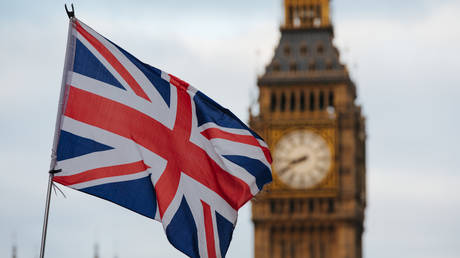Britain is utilizing its new so-called counter-disinformation unit to buy ads on Russian social media to disseminate London’s view on the conflict in Ukraine, the Telegraph claimed on Saturday. The Government Information Cell (GIC) is operated between the Ministry of Defence and the Foreign Office, the first such unit since the end of the Cold War. The social media platform mentioned in the article has refuted reports that it showed British government ads.
The unit’s “crucial audiences” are in Russia and Ukraine, the article highlights. After Moscow blocked Twitter and Facebook, the Telegraph reports, the GIC has turned to advertising agencies to “target” Russian users on sites such as VK, the country’s most popular domestic social media platform. The tech firm's press service has already refuted the claim, telling Russian news site RBC that “all ads go through verification and have to follow VK’s and Russia’s law.” The website rules in any case prohibit political ads.
The tactic is described as reaching the devices of people “who would never have thought to seek out the view of the British Government.” Some 35 full-time staff were reportedly pulled from numerous departments, including the Foreign Office, Home Office, Ministry of Defence, Department for Digital, Culture, Media & Sport, and the Cabinet Office.
Britain’s Foreign Secretary Liz Truss revealed the unit’s creation in late February, days before Moscow attacked its neighbor. Back then she outlined in an interview with the Mail that the unit’s task is to expose and fight “false information.” Details of how the unit is countering supposed “Kremlin disinformation” were given in the Telegraph’s report.
The unit identifies so-called “Russian disinformation,” brands it as false and then creates “new content” to be spread online. It also apparently distributes reports to NATO and EU members, along with Australia and New Zealand. The unit further coordinates with embassies abroad to translate content around the world.
The article gave an example of the sort of content the unit disseminates. One of the videos from late February involves Prime Minister Boris Johnson addressing Russians in their own language saying that “I do not believe this war is in your name.” The unit claims that more than eight million people viewed this video, according to the Telegraph. VK’s audience is nearly 79.3 million as of October 2021.
An unnamed person dubbed an “ally of Ms Truss” told the newspaper that the Foreign Secretary believed that “ditching our Cold War anti-propaganda capability was a mistake,” and that this unit is a restoration of that.
In 1948 during the Cold War-era Foreign Office had a covert unit called the Information Research Department (IRD) created to spread anti-Soviet and anti-communist views. It was disbanded in 1977 by then-Foreign Secretary David Owen. The IRD is thought to have operated alongside MI6 and the BBC’s World Service. Among other controversial dimensions, according to declassified documents, the British propaganda campaign incited the mass slaughter of communists in Indonesia in the 1960s. The unit was also involved in undermining the Irish Republican Army during the war in Northern Ireland and in countering the ‘Black Power’ movement in the Caribbean.



